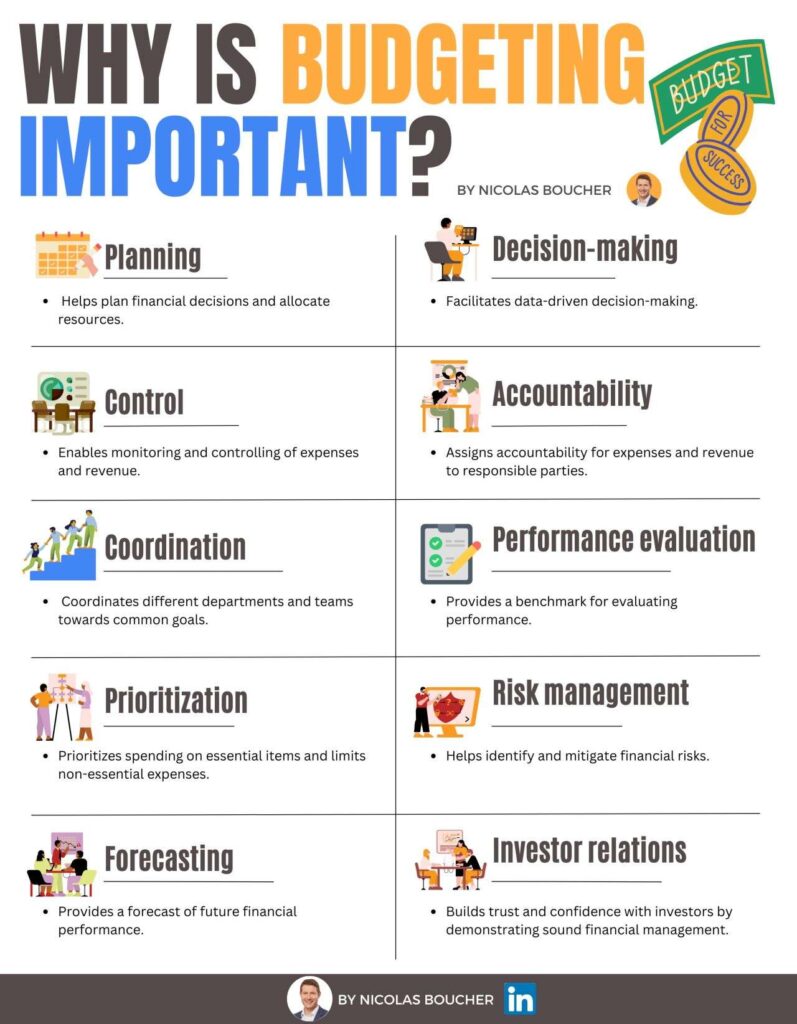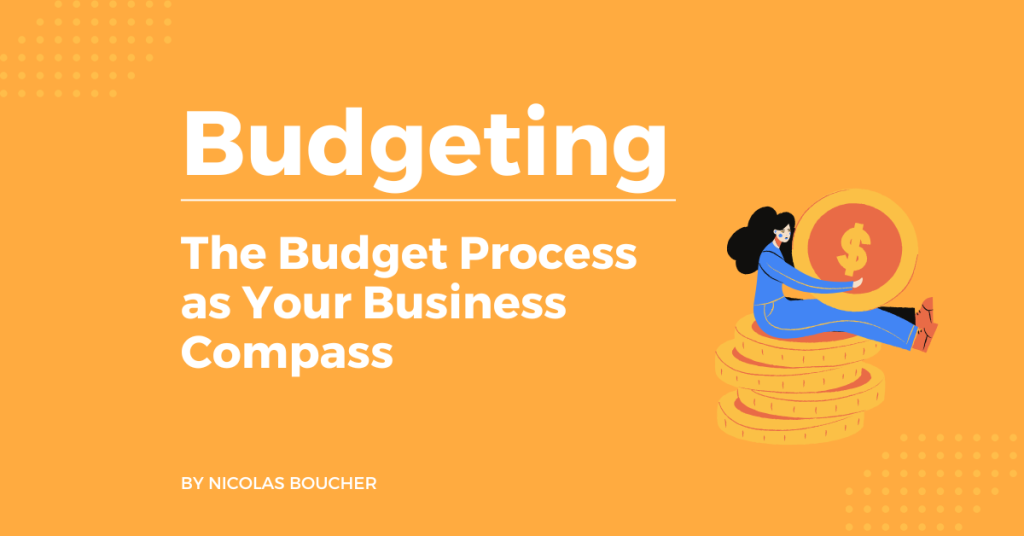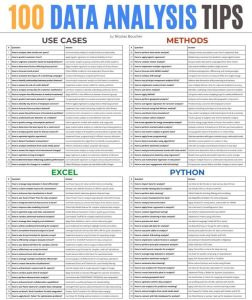Budgeting plays a crucial role in the realm of finance. It is a strategic tool that enables finance professionals to plan, control, and monitor financial activities.
Therefore, we will explore the key advantages of implementing budgets and highlight why budgeting holds immense importance for finance professionals.
Table of Contents
10 Main Advantages of Implementing Budgets
Here are the 10 crucial advantages of implementing a budget in your company:

#1: Planning
Budgeting helps in planning financial decisions and resource allocation.
By setting financial targets and estimating expenses, finance professionals can chart a clear path to achieving organizational goals.
Furthermore, effective planning ensures optimal utilization of resources and facilitates business growth.
#2: Control
Budgets provide a reference point for monitoring and controlling expenses and revenue.
With a budget in place, finance professionals can track actual performance against planned targets.
This allows for early identification of deviations, enabling timely corrective actions and effective cost management.
#3: Coordination
It fosters coordination among different departments and teams.
Furthermore, it aligns them toward common goals and objectives.
During the process, finance professionals have the opportunity to facilitate discussions and ensure collaboration among various stakeholders.
#4: Prioritization
Budgets aid in prioritizing spending on essential items while limiting non-essential expenses.
Also, they provide a framework for decision-making, allowing managers to allocate resources strategically.
Moreover, this helps optimize the utilization of financial resources and ensures that funds are directed toward activities that drive value.
#5: Forecasting
Budgeting involves forecasting future financial performance.
It goes beyond mere numbers and focuses on outlining the path to achieving desired outcomes.
In addition, by analyzing trends, market conditions, and internal factors, finance professionals can develop forecasts that guide business strategies and actions.
#6: Decision-making
It facilitates data-driven decision-making.
During the process, finance professionals develop business cases and evaluate investment opportunities.
Also, the availability of accurate financial projections and cost-benefit analysis aids in making informed decisions that align with organizational objectives.
#7: Accountability
Budgets assign accountability for expenses and revenue to different stakeholders.
Each department or team is responsible for managing its allocated budget.
As a result, this fosters a sense of ownership and accountability, driving performance and ensuring that resources are used efficiently.
#8: Performance Evaluation
Budgets are often used as a tool for evaluating the performance of teams and business units.
By comparing actual results against budgeted targets, finance professionals can assess performance, identify areas of improvement, and recognize achievements.
Moreover, they provide a benchmark for assessing the effectiveness of financial management.
#9: Risk Management
It helps identify and mitigate financial risks by looking into the future.
By incorporating risk factors into the process, finance professionals can anticipate potential challenges and take proactive measures to minimize their impact.
Additionally, this enhances the organization’s resilience and financial stability.
#10: Investor Relations
Whether a company is publicly listed or privately held, investors need visibility into its financial trajectory.
Having a budget in place demonstrates sound financial management and provides a roadmap for future growth.
Also, it helps build trust and confidence with investors, showcasing the organization’s commitment to strategic financial planning.
The Bottom Line – Budgeting Is Essential for Your Business
Budgeting serves as a critical tool for finance professionals, offering numerous advantages that drive financial stability, effective decision-making, and strategic growth.
In addition, from planning and control to coordination and risk management, it provides a framework for achieving organizational goals.
Furthermore, by harnessing the power of budgeting, finance professionals can enhance financial performance and contribute to the overall success of the organization.
Lastly, transform your budgeting skills by taking my course and see your finance career take off!
Key Takeaways
- Budgeting enables effective planning and resource allocation.
- Budgets provide a reference point for monitoring and controlling financial activities.
- It fosters coordination and collaboration among different teams and departments.
- Budgets aid in prioritizing spending and aligning resources with strategic objectives.
- It supports data-driven decision-making, risk management, and investor relations.















